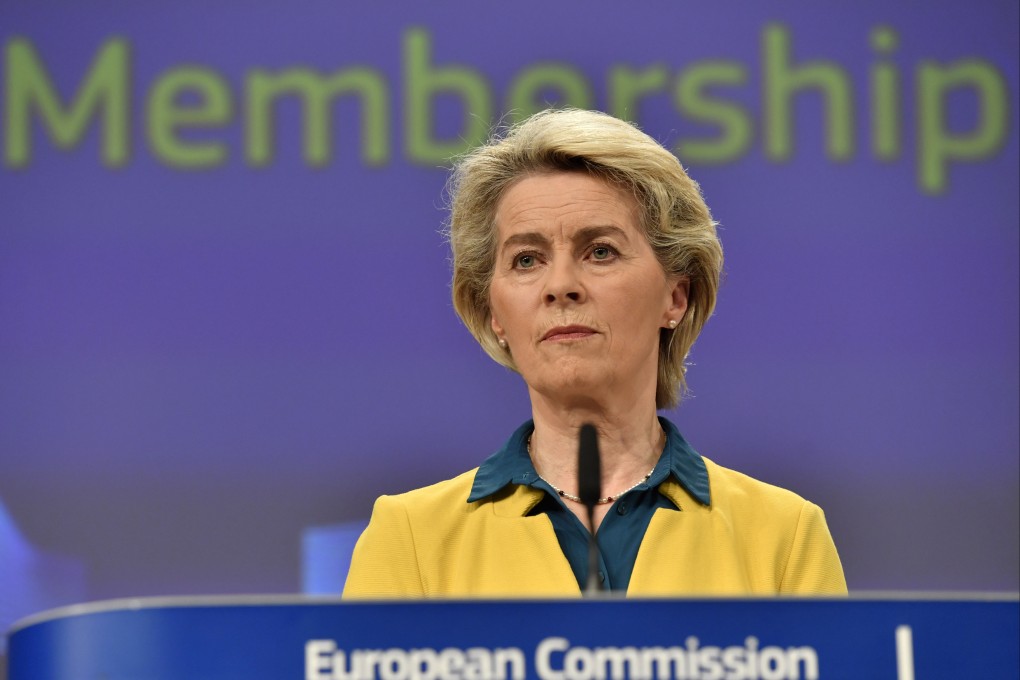EU backs Ukraine’s membership bid as war brings huge historic shift
- Ukraine EU candidacy signals major change in European geopolitics – ‘Europe can create a new history of freedom’ President Volodymyr Zelensky says
- Leaders of EU countries are expected to endorse the decision at a summit next week after Germany, France and Italy signalled their solidarity on their Kyiv visit

The European Union gave its blessing on Friday to Ukraine to become an official candidate to join the bloc, along with its neighbour Moldova, a historic eastward shift in Europe’s outlook brought about by Russia’s invasion.
Ukraine applied to join the EU just four days after Russian troops poured across its border in February. Four days later, so did Moldova and Georgia – two other ex-Soviet states contending with separatist regions occupied by Russian troops.
“Ukraine has clearly demonstrated the country’s aspiration and the country’s determination to live up to European values and standards,” the EU’s executive Commission head Ursula von der Leyen said in Brussels. She made the announcement wearing Ukrainian colours, a yellow blazer over a blue shirt.
Leaders of EU countries are expected to endorse the decision at a summit next week. The leaders of the three biggest – Germany, France and Italy – had signalled their solidarity on Thursday by visiting Kyiv, along with the president of Romania.
“Ukraine belongs to the European family,” Germany’s Olaf Scholz said after meeting President Volodymyr Zelensky.
The Commission recommended candidate status for Ukraine and Moldova, but held off for Georgia, which it said must meet more conditions first. Von der Leyen said Georgia has a strong application but had to come together politically. A senior diplomat close to the process cited setbacks in reforms there.